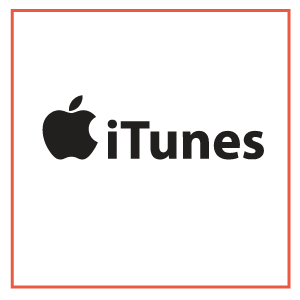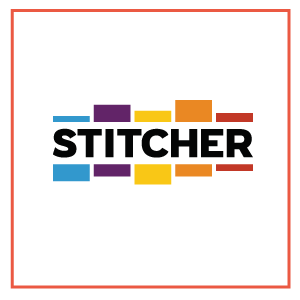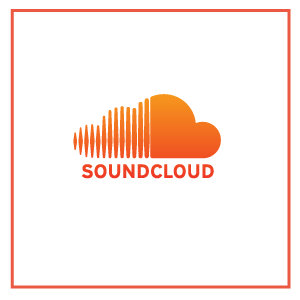Episode 31: Website Design and Hosting Brisbane
Starting a New Website? - Learn more about Web Design Brisbane here
ALSO LISTEN ON
READ THE TRANSCRIPT OF EPISODE 31 BELOW
[00:00:00] Saul: Hi everybody, and welcome to the Web Design Brisbane Podcast This is episode number 31. Today's episode is entitled Website Design and Hosting Business. My name is Saul Edmonds, and as usual, I'm joined by the lovely Gillian Smith.
[00:00:13] Gillian: Hello, Saul! How you going?
[00:00:14] Saul: I'm great. How are you?
[00:00:15] Gillian: I'm fine. Thanks for asking. We are the co-founders and creative directors of ran has the creative agency, a local business with a passion for helping our clients grow. Over to you, Gil.
[00:00:25] Gillian: Okay, thanks Saul. Well, in today's episode, we will be chatting about professional website design and hosting solutions for small businesses in Brisbane, Australia. Firstly, with regard to web design will ask why is a quality websites so important for businesses today? And from there, we'll go over to a recommended checklist of elements that you should include as standard in your small business website and finally, we're going to have a chat about website hosting. What actually even is website hosting? And why is it important to have a quality website hosting?
[00:00:59] Saul: Awesome, okay, so let's get started.
[00:01:01] Gillian: Okay, Saul. So in a nutshell, from all your years of experience, what is a quality websites so important for small businesses?
[00:01:08] Saul: Okay, so I guess another way of asking that, too, is, why wouldn't you have a quality website for your small business? Is that ...
[00:01:17] Gillian: an investment?
[00:01:18] Saul: Yeah, well, it's an investment in your business, and like, let's be frank with this, too, for the majority of people, their first experience of your business may just be and probably will be your website so if you if you talk about it like that, why wouldn't you want it to be the very best it could be, because you wouldn't want any other impression of your business to be anything else. But exceptional, you want to make a great impression on people so that also goes for your website, and should always be thought about in that way, in anything, whether it's your branding, you talk to people on the phone, any print material, you give them a business card, and then of course, one of your biggest tools, your website.
[00:02:10] Gillian: It's a way to build connection with your audience.
[00:02:13] Saul: Yeah, that's right and, of course, getting leads, and a whole host of other things, but just on that very simple sort of level of how you come across to people for the very first time for that first impression and, of course, just about information that people want to know, because people have to remember people already have a need that they're trying to fulfil. And they've found your site by some way online, either by searching and you're showing up in search results over AdWords, or they already knew about your website, and they've typed it in or they saw it on a card, or they just talked to you on the phone, then going over to affirm what they think they want, or to reaffirm after talking to you and to do some further research, and then more then also go to LinkedIn, and Facebook as well, but primarily, still your website.
[00:03:20] Gillian: Okay, well, let's talk about the key elements that a successful small business website should have.
[00:03:26] Saul: Okay, so let's just run through a checklist. Some of these, like a lot of people listening would already know and go Yes, yes, yes, that's obvious. But this is primarily for people who are new to this. But it's always good to have this checklist anyway, for anyone at any level, having a CMS, a content management system, for a website that lets you edit your website, easy to opt out, easy to update for the future for everybody involved. Good side navigation so sounds like a no brainer again but it's something that's often overlooked. Thinking about, which just gets back to what people want. How do you make that easy for them? How do you make it easy? So it looks great, but how do you make it easy, so you don't put up walls in place to make it harder for people to get to what they want barriers
[00:04:27] Gillian: to communication?
[00:04:29] Saul: Sure. Yeah, exactly. Strategic branding. So you've got great branding, but strategic, that gives the right amount of thought to represent in all the ways that are inside under the umbrella of branding, to represent your business in the way it should be to your clients or your customers. It should be optimized for SEO firm, that's search engine optimization. It's optimized, the best way it can be initially, for any particular search terms, which I might add need to be identified at the start of the process. It's not enough to say it's optimized for SEO, it's got to be you have to know what that actually means.
[00:05:18] Gillian: Also when you're thinking keywords, don't follow what everyone else does. Okay, there's a lot of value and just that the smaller niche terms that really dovetail in with the services and products that you have.
[00:05:31] Saul: Yeah, that's quite true, there's a lot of different ways you can approach that. And that's one really great sort of strategy, too. Having an integrated blog that is regularly updated, adds to things, search engines absolutely love them, they go nuts for them, and also, just from a front end experience, good content, that adds value and tells people important things about the business this and puts you in a position of expert is a really fantastic tool, because a lot of marketing
[00:06:07] Gillian: is actually about education.
[00:06:09] Saul: Yeah, that's right so you're educating people, and in people's minds, as you do that, too wonder, it has to be good content, you can't have terrible content, it has to be well thought through and then you've got newsletter as well. There's a range of different ways to do this, or reasons but having people subscribe to a newsletter, gives people, gives you the opportunity then to make further contact with them. If they're interested, they will generally also they might be interested in signing up, and there's different ways to do that. It often not always the best thing just to say sign up to a newsletter having some sort of incentive that can continue to add extra value.
[00:06:58] Gillian: So when it comes to email newsletters, how useful are they for boosting conversion?
[00:07:04] Saul: Okay, so in thinking about a newsletter, people are really great way to think about that's an extension, then that's obviously content, but it's also an opportunity, then for you to make further contact with people in the right sort of way, not just about anything. But if people are going to sign up and wanting to participate in that from you, then that's a fantastic opportunity to either sell, or just really to add extra value to the experience that they've already had because if people like it, they'll often share it with other people so it's a great way to start to get that process happening, of people who like what you do, being an advocate for you as well.
[00:08:03] Gillian: And also, an email marketing helps you to stay top of mind so you can reach people when they're at the boiling point in the cycle.
[00:08:12] Saul: And you don't always know when that is, and email marketing is definitely not dead no matter what anyone sort of says, Google Analytics or some form of analytics, but Google Analytics is a great tool provided by Google that you can plug into your website, and it's free, as well, and that enables you to see the sort of activity at a very granular level, like very simple level two, but a very granular level for the sort of traffic and whole range of other metrics relating to your website.
[00:08:53] Gillian: You can use Google Analytics to learn more about search terms and about how people are finding you.
[00:08:58] Saul: Yeah, that's right. So it's a great marketing tool as well, it can be used once you've got someone that can help you understand it, but also use it in the right way. It's absolutely fantastic at domain name, registration, which we've talked about in other podcast, but the main name registration, to get that right, or to have a number of domains that you point to, on your website, it's very important, and of course, your website hosting to, so to have hosting that is going to be suitable for your website.
[00:09:36] Gillian: Okay, well, just mentioning hosting there. Let's take that as an opportunity to talk a little bit more about website hosting so people who are new to web design, what is website hosting?
[00:09:49] Saul: Okay, so website hosting is where your website resides online to all data that you see online has to reside somewhere essentially on computer, which is a service not your average computer, it's servers that has very large amounts of information in great big institutions all around the world and there's big centres where all this information is housed, and your website is one of them somewhere, and you pay a fee, in order to essentially lease that space, like real estate, if you're renting a house, you're leasing space on a server somewhere, to have a little segment of that is allocated to the data on your website, and also the data that comes from people visiting your website, and when they download your website to look at it in their web browser.
[00:10:51] Gillian: So why is reliable website hosting so important?
[00:10:55] Saul: Well, it lets you put your website, ensure That's it, and well in about also...
[00:11:02] Gillian: in terms of security in..
[00:11:04] Saul: Yeah, so that that too, because a lot of website hosting, really isn't that different from each other? Yeah, that's the reality there is varying levels by the sort of services, then that come from the top of support you get, in some ways, more important, because it's like insurance, the only time you really have most people ever think about web hosting is when something bad happens, unfortunately, but then when and if that does happen, then, at least if you've got good support there, and of course, the quality of the hosting does differ to some extent, so always going for the cheap path with web hosting, is generally not a good idea because that when the time comes, they're not going to have you back.
[00:12:02] Gillian: So what should people expect to generally pay for website hosting? Is it paid yearly?
[00:12:08] Saul: Yeah, it paid. It's often paid yearly. Sometimes different people give you the option to pay monthly. If it's a self-hosted system, like something like Squarespace or Wix, their websites, and they're hosting a part of the one thing so you don't install your website on separate hosting, it's all part of the one thing that is either yearly or monthly. Same with other hosting to and I mean..
[00:12:36] Gillian: WordPress, you need a separate a host.
[00:12:38] Saul: Yeah, that's right and there's another version of WordPress, which is hosted like Squarespace, too, but generally you install the software for WordPress on a server, and then you have your fire episode and you start the whole process. And you build a website hosting can ranges usually, as well, I can range from $10 a month up to like hundred 200 300 a month or more depending on the size of server, if you got a really big ecommerce site, and it's using a huge amount of data. Lots of visitors, you need a bigger server because of I'll put it simply, the more people viewing your site, the more data is being used because they're viewing each page, and that page includes data, and if you got 10,000 users downloading X amount of data per day, or you've got 10 users, you're going to have different hosting, because it needs to be faster, and it needs to work better because there's more people doing it advanced as well so everything needs to be quicker so with that wrap up about web hosting.
[00:13:59] That's actually it for today again, guys, thank you so much for listening. Before we go, please don't forget to write a review and subscribe to this podcast. We'd love to hear your feedback. Also, if you'd like to read the transcript of this episode, please visit our website @roundhouse.cc forward slash web hyphen design. We are on a journey to help local Brisbane businesses grow their opportunities online and exceed their goals. Thanks for listening and we'll see you tomorrow. Bye.
[00:14:28] Gillian: Bye, everybody.








